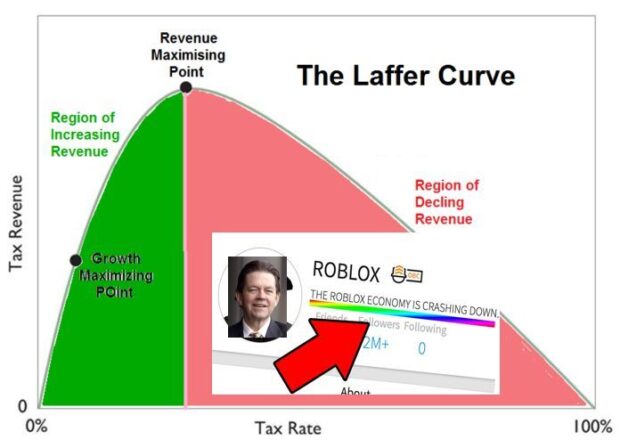
Nothing New in the West? Think Again!
Journal 40 Adam Smart August 24
Why Gamescom 2025 breaks records, why Europe delivers creative answers, and why monetization remains the industry’s defining challenge.
An Event of Superlatives
Gamescom 2025 in Cologne once again demonstrated why it has firmly established itself as the most important gaming event in the Western hemisphere. With more than 1,500 exhibitors from over 70 countries, a record 233,000 square meters of exhibition space, expected 335.000 visitors, and millions of viewers worldwide, the show reaffirmed its dominant position.
Blockbusters and Big Reveals
The opening highlights included Call of Duty: Black Ops 7, Resident Evil: Requiem, Silent Hill, Lego Batman: Legacy of the Dark Knight, World of Warcraft: Midnight, and, to the delight of many, long-awaited footage of Hollow Knight: Silksong. Sony revealed Ghost of Yōtei, while Black Myth: Zhong Kui from China showcased its surreal tiger-mounted ghost-catching god. Horror fans were thrilled by Bloober Team’s Cronos: The New Dawn, and retro enthusiasts welcomed the return of Ninja Gaiden 4 and the long-delayed Vampire: The Masquerade Bloodlines 2. Even Ron Gilbert, creator of Monkey Island, turned heads with his quirky new shooter Death by Scrolling.
Beyond the AAA blockbusters, cultural moments also stood out. A live musical performance from Clair Obscur: Expedition 33 reminded the industry that some of the boldest new voices in gaming are coming from Europe — a point too often overlooked when people claim “nothing new comes from the West.”
Cultural Trends and Standout Moments
A clear cultural current running through this year’s Gamescom was the rise of anime-inspired titles. Countless “Genshin-like” RPGs dominated the halls, while Japanese IPs such as Ghost of Yōtei and Silent Hill f underscored the influence of anime aesthetics on global gaming.
Crucially, this trend is no longer limited to Japan. Last year’s Black Myth: Wukong showed the world that China can deliver true AAA experiences on a global stage. Its successor, Black Myth: Zhong Kui, took center stage in Cologne this year, with its ghost-catching god astride a hyper-realistic tiger — a bold statement of China’s growing role in shaping the future of blockbuster gaming. Even One Piece found its way into the spotlight with a Lego crossover, arriving on the heels of the Netflix show’s success and serving as a playful reminder of how deeply anime has entered mainstream gaming culture, and how Western publishers are embracing it.
On the hardware side, Microsoft made waves by unveiling the ROG Ali Xbox, a clear counter to Steam. What impressed me most was how fluidly Forza ran on the device, powered by a streamlined Windows 11 OS that looked set to blur the line between console and PC ecosystems. And beyond the halls, the event’s international scale was unmistakable. The entire city of Cologne transformed: every billboard was gaming-focused, and countless side events spread across the city, starting days before the official opening.
This year’s trip to Gamescom felt less like travel and more like a pilgrimage to the holy land of gaming, in my case, complete with a 12-hour convoy from the UK to Cologne as part of the one and only Wizards Rally. The rally wasn’t just about spectacle; it also supported GamesAid, the UK games industry charity raising money for organizations that work with children and young people and creating impact beyond the show floor.
The Other Side: Funding and Monetization
The vibrant, colorful consumer-facing side of Gamescom — open to the public and packed with premieres tells only half the story. There is also the trade-visitor side, where the “hard talk” takes place: the closed-door discussions about finance, monetization, and sustainability.
This year, the mood was clear: the industry faces mounting financial pressure. Venture capital has become scarcer, with many investors showing restraint, particularly in mobile gaming. For studios, this means monetization and user acquisition must be built into the strategy from day one.
Creativity alone is no longer enough. Long-term success depends on building a loyal user base alongside sustainable revenue streams. Subscription models, in-game advertising, and transparent in-app purchases are not optional extras; they are critical pillars of survival.
2025 as a Turning Point in Mobile Gaming
Regulatory changes further amplify this dynamic. Europe in particular is setting new standards around fairness, transparency, and user wellbeing. In-app purchases must be clearly communicated, refund processes are being streamlined, and manipulative “dark patterns” are increasingly curtailed. These changes should not be seen as obstacles but as opportunities. They pave the way for a healthier digital ecosystem where trust and loyalty become the true currency of success.
Europe Between Creativity and Capital
Another recurring theme at Gamescom was global competitiveness. It is often said that “nothing new comes from the West” and that all eyes must turn to Asia, to Japan, Korea, or China, where heavy investment and large domestic markets fuel rapid innovation. But that narrative tells only part of the story. Europe is home to immense creative talent and has delivered groundbreaking titles. Clair Obscur: Expedition 33 from France is one such recent example, a game that has captured global attention and demonstrated that European studios continue to push boundaries.
Still, the challenges remain: fragmented markets, limited access to capital, and a lack of regulatory and infrastructural harmonization. To compete globally, Europe needs more than creativity; it needs stable frameworks that allow studios to scale and thrive.
Conclusion: Optimism Amid Pressure
Gamescom 2025 was a resounding success. Bigger, more international, and more influential than ever. Yet it also served as a mirror of reality: despite record-breaking attendance and dazzling premieres, the industry must face the hard questions of funding, monetization, and Europe’s role in the global market.
If creativity, fair business models, and reliable structures can be brought together, Gamescom will not only remain the West’s flagship gaming event but also the place where the future of global gaming is defined.







